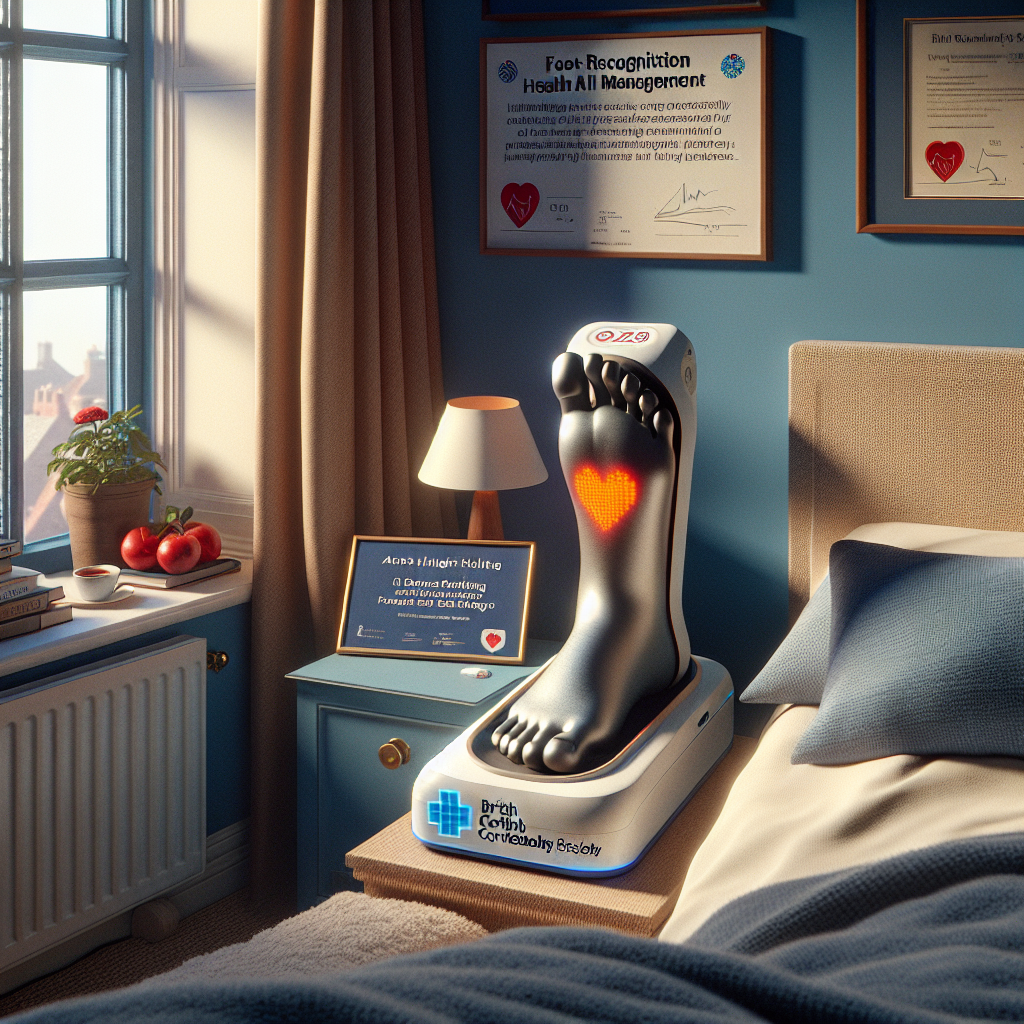A groundbreaking home device could soon revolutionize heart failure management, potentially preventing hospitalizations by monitoring critical health indicators right from the comfort of one’s bedroom. Presented at the British Cardiovascular Society conference in Manchester, the innovative AI-powered foot-recognition scanner promises to deliver timely alerts, allowing for early intervention and better health outcomes.
Heart failure affects over a million individuals in the UK, often leading to hospital admissions when not adequately managed through medication or lifestyle adjustments. The new device uses advanced foot-recognition technology, akin to facial recognition systems, to detect fluid buildup in the feet and ankles—a key indicator of worsening heart failure known as oedema.
Developed by Cambridge-based Heartfelt Technologies, the wall-mounted scanner operates silently beside the bed, capturing approximately 1,800 images per minute from multiple angles. By analyzing these images, the AI calculates the volume of fluid in the lower legs, providing a crucial early warning that can alert healthcare providers up to two weeks before a potential hospitalization.
Dr. Philip Keeling, a senior researcher and consultant cardiologist, highlights the device’s role in bridging the gap caused by the shortage of heart failure nurses. “This scanner acts like a virtual nurse, continuously monitoring patients and alerting their care team when intervention is needed,” he explains. This proactive approach empowers patients to manage their condition more effectively, reducing the emotional and physical burdens associated with frequent hospital visits.
The FOOT study, conducted with 26 participants across five NHS trusts, demonstrated the device’s efficacy. Among the users who experienced alerts, the scanner successfully predicted the majority of hospitalizations, outperforming traditional weight monitoring methods. Impressively, 82% of participants chose to keep the device after the study, underscoring its potential acceptance and impact.
Privacy and ease of use are paramount in the device’s design. It operates without requiring internet access, making it suitable for older adults who may not be tech-savvy. The scanner exclusively captures images of the lower legs up to 50cm from the floor, ensuring personal privacy while effectively monitoring for oedema.
Looking ahead, Heartfelt Technologies plans to expand the trial to a larger patient cohort and enhance the device’s capabilities, including scanning through thin socks to facilitate broader adoption in settings like care homes. While current limitations exist in identifying multiple users simultaneously, ongoing improvements aim to address these challenges.
Professor Bryan Williams of the British Heart Foundation lauds the study, stating, “This device could significantly improve outcomes for patients with heart failure by enabling earlier interventions and reducing hospital admissions.” Such advancements align with broader goals to integrate technology into healthcare, enhancing patient care and operational efficiencies.
As the medical community continues to embrace AI-driven solutions, devices like the home foot-recognition scanner represent a significant step forward in chronic disease management. By providing timely insights and enabling proactive care, technology is set to transform the lives of those living with heart failure, offering hope for fewer hospitalizations and a better quality of life.



